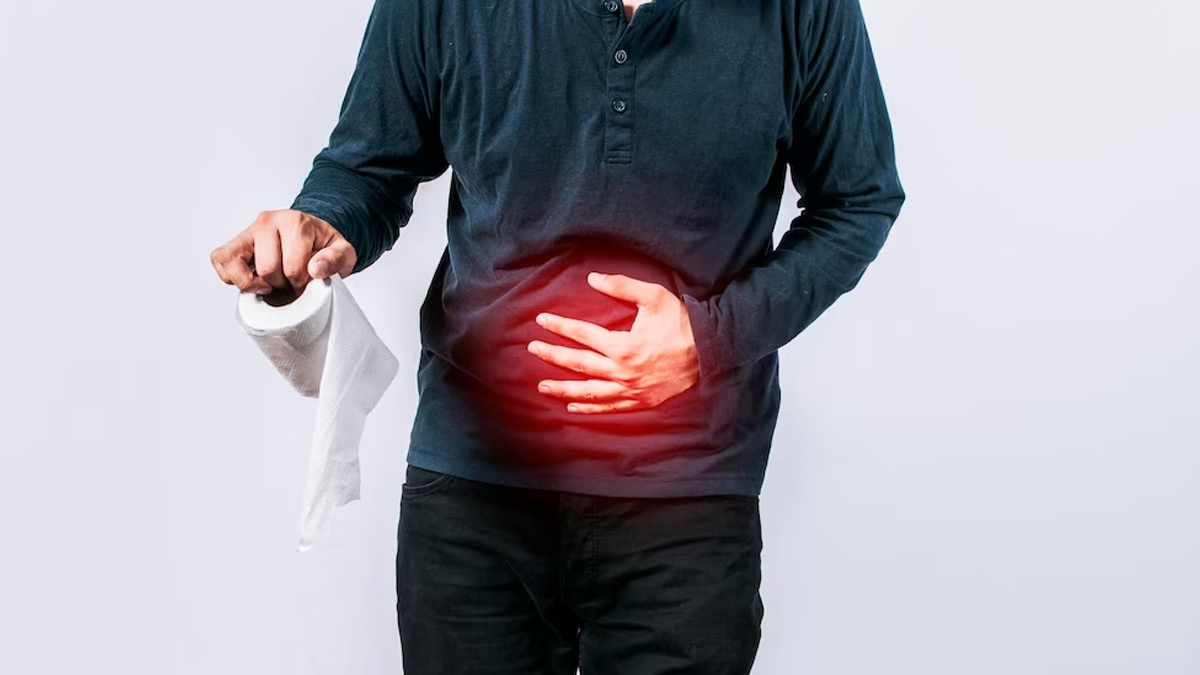
Diarrhoea is a stomach problem that is often identified by frequent passing of loose, watery stool. It can occur due to a viral or bacterial or parasitic infection. Other causes include certain food intolerance, food allergies, reaction to medications, or dehydration. With changing weather, incidences of diarrhoea can also go up. While diarrhoea does not cause any life-threatening complications, it can be discomforting. During such times, maintaining a proper diet and choosing healthy, nutrient-rich foods is important. Speaking with the OnlyMyHealth team, Anupama Menon, Nutritionist and Lifestyle Coach, Bengaluru, discusses the foods to eat and avoid when suffering from diarrhoea.
Table of Content:-
Also Read: Does Cranberry Juice Prevent Or Treat UTI? Know What Experts Have To Say
Symptoms Of Diarrhoea

Common symptoms of diarrhoea include:
- Passing loose, watery stools frequently
- Abdominal pain and cramps
- Fever
- Lightheadedness or dizziness from dehydration
- Nausea and vomiting
- Bloating
- Urgent need to go to the bathroom
- Bleeding
Choose Your Foods Wisely

According to Nutritionist Menon, diarrhoea is usually a temporary issue, which can lead to dehydration and nutrient deficiencies if not managed properly. That said, proper nutrition plays a crucial role in supporting the body's recovery during this time, she notes. Here are some foods to eat and avoid when dealing with diarrhoea to promote healing and restore digestive health.
Foods to eat if you have diarrhoea
Bananas: Rich in potassium and easily digestible, bananas are excellent for replenishing lost electrolytes and providing gentle fibre that can help regulate bowel movements.
Toast: Plain, white toast can help soothe the stomach and provide some necessary carbohydrates without adding additional stress to the digestive system.
Boiled Potatoes: Potatoes boiled or mashed without added fats or spices can offer a bland source of energy and help alleviate diarrhoea symptoms.
Yoghurt: Opt for plain, unsweetened yoghurt with live active cultures or probiotics. These beneficial bacteria can aid in restoring the balance of gut flora and promote faster recovery.
Also Read: Do You Have To Fast Before A Cholesterol Test? Know From An Expert
Foods to avoid if you have diarrhoea
Dairy Products: Lactose intolerance can worsen diarrhoea symptoms. Avoid dairy products like milk, cheese, and ice cream until your digestive system recovers.
Spicy and Greasy Foods: These foods can irritate the digestive tract and worsen diarrhoea. Avoid spicy dishes, fried foods, and high-fat meals until symptoms subside.
Caffeinated and Carbonated Beverages: Coffee, tea, soda, and carbonated drinks can contribute to dehydration and irritate the gastrointestinal system. Stick to water, herbal teas, or clear broths to stay hydrated.
Sugary and Processed Foods: Foods high in sugar, artificial sweeteners, and processed ingredients can disrupt the delicate balance of gut bacteria. Steer clear of sugary snacks, processed foods, and sweets.
What To Do If You Have Diarrhoea?

Besides having nutritious, tummy-friendly foods, you need to take other measures if you’re dealing with diarrhoea. These include:
- Drink plenty of fluids to avoid dehydration
- Have small sips of water frequently
- Avoid fatty foods
- Have probiotic foods
- Consult a medical professional
Bottomline
From being hot to humid, episodes of diarrhoea can be common during the summer months. That said, it is crucial to stay hydrated and eat fresh, healthy foods. Avoid foods that can put you at risk of infections and disrupt your digestive health.
Also watch this video
Read Next
Are There Any Differences and Similarities Between Type 1 and Type 2 Diabetes? Read on To Know.
How we keep this article up to date:
We work with experts and keep a close eye on the latest in health and wellness. Whenever there is a new research or helpful information, we update our articles with accurate and useful advice.
Current Version